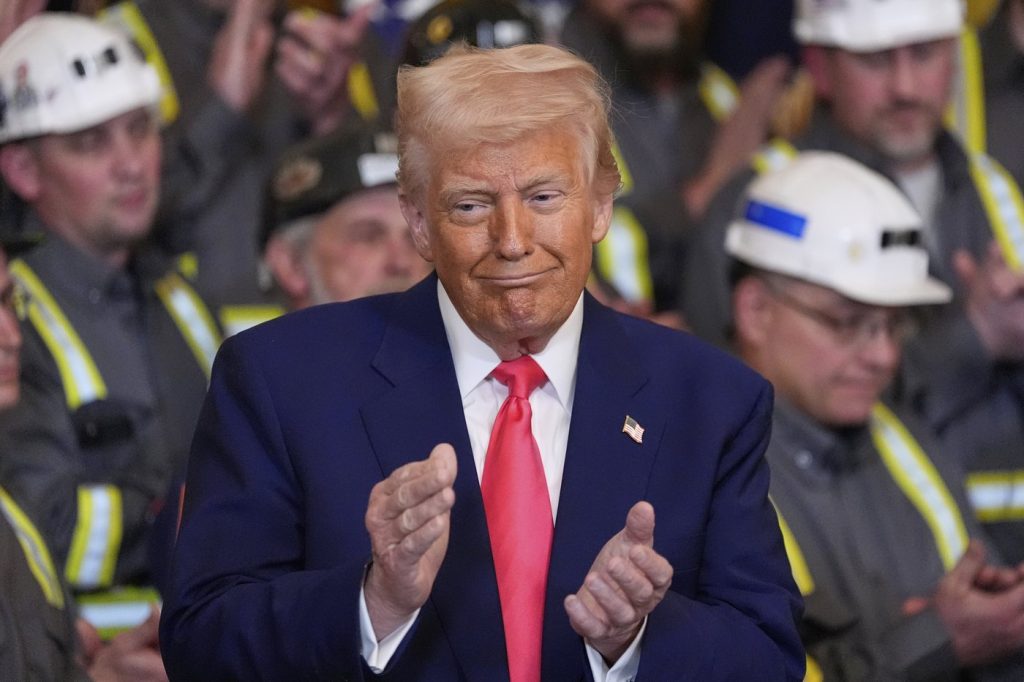On a bright Wednesday afternoon in Washington, President Donald Trump emerged from the Oval Office, basking in the aftermath of his unexpected decision to roll back proposed tariffs on U.S. trading partners. This decision came less than two hours after he had temporarily thrust the global economy into turmoil with the announcement of significant tariff increases, leading to a dramatic plunge in the stock market and unrest among investors.
Senator John Barrasso from Wyoming lauded Trump, proclaiming that the financial markets were recognizing his "brilliance." Trump, known for his penchant for hyperbole, concurred, stating, "Nobody's ever heard of it." This acknowledgement underscored the chaotic series of events that had unfolded over the past week, particularly regarding the economic repercussions of his administration's tariff policies.
The president's initial announcement, made in an elaborate Rose Garden ceremony, would have implemented America's largest tax increase since World War II. As a result, the stock market reacted negatively, leading to widespread concern among businesses and foreign leaders about the future of international trade with the United States. However, after just several days of intense scrutiny and economic backlash, Trump retreated from his proposed tariffs, sparking relief among investors and the public alike.
Despite the reinstatement of some tariffs, including a staggering 125% on imports from China and 25% on essential goods from Canada and Mexico, the immediate uncertainty surrounding trade negotiations continued to hinder economic stability. Trump characterized his actions as reflective of a "flexible" strategy, despite earlier claims of resolve against backing down.
The tumult over tariffs had far-reaching consequences. Many companies began to reassess their operations, facing increased costs for importing materials—particularly businesses like Fulcrum Coffee Roasters, which risked higher expenses for coffee beans, and Stellantis, which announced production pauses affecting thousands of workers due to rising production costs. Countries like Ireland and Japan reacted to the shifting trade landscape with visible alarm as U.S. businesses began to scale down their international dealings.
As concerns about an impending recession loomed, Republican lawmakers found themselves under increasing pressure to respond to Trump's volatile trade strategy, raising questions about his overall approach. Senator Ron Johnson from Wisconsin expressed widespread confusion regarding Trump's tactics, while Senator Thom Tillis of North Carolina directly confronted officials over the repercussions of the tariffs.
Even as the administration defended its strategies, mixed messages emerged from within Trump's team. Treasury Secretary Scott Bessent asserted that the decision to pause tariffs stemmed from Trump’s intentional strategy; however, Trump contradicted this later by stating that he had been closely monitoring the financial markets. This back-and-forth contributed to an environment filled with skepticism regarding U.S. leadership in global trade.
In a ceremonial announcement on April 2, which Trump dubbed "Liberation Day," he presented a detailed list of proposed tariffs, creating immediate anxiety within global markets. Despite his optimistic projections for economic growth, reality soon revealed that the stock market experienced its worst decline since the onset of the coronavirus pandemic just a day after his announcement. Actions taken by businesses and policymakers globally showcased the interconnectedness of the economic landscape, amplifying fears of a recession as economic relationships suffered.
In summary, the tumultuous day occurred amid competing narratives from Trump's administration regarding the economy's health and trade strategies. The rapid policy shifts left investors uneasy, companies on edge, and generated internal dissent among Republican lawmakers questioning their leader's judgment on trade matters. With ongoing negotiations and lingering uncertainty, the lasting impacts of Trump's tariff decisions continue to unfold.










